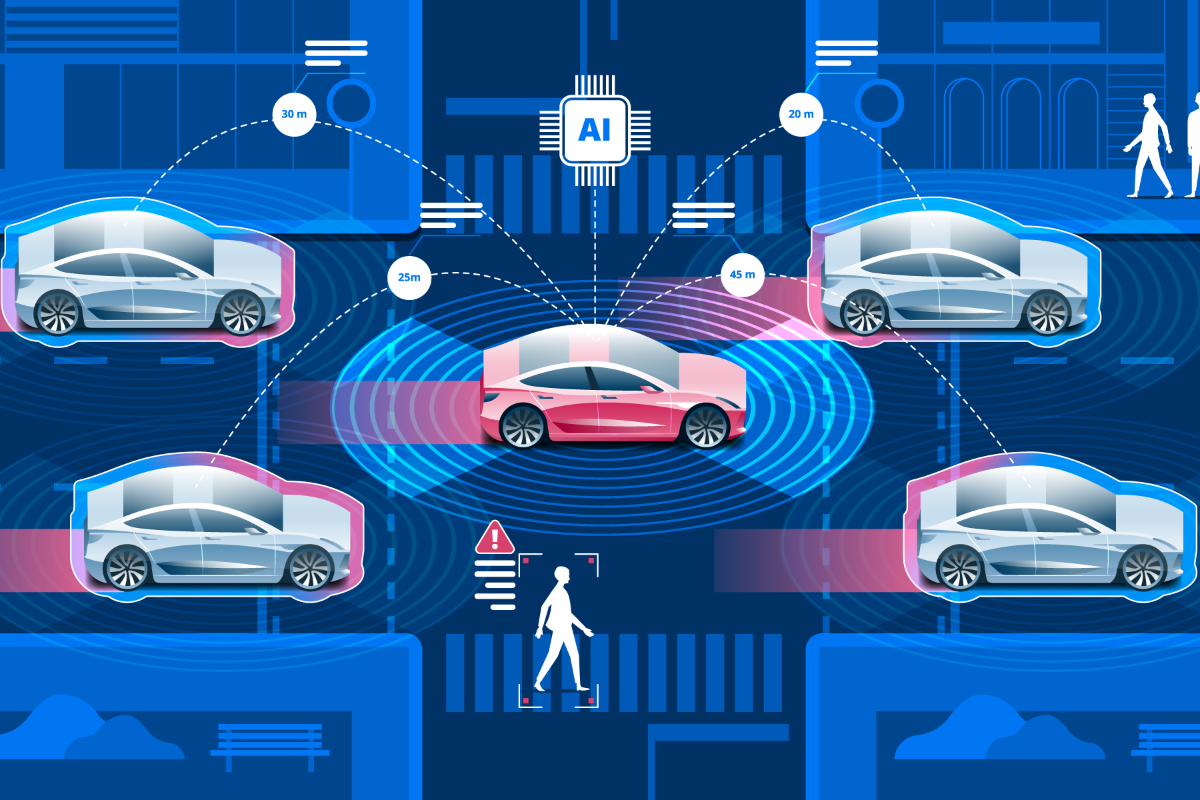Pulse of Information
Stay updated with the latest news and insights.
Cars That Drive Themselves: Are We Ready to Sit Back and Chill?
Discover if we're ready for self-driving cars! Explore the future of relaxation and safety on the road - it's time to sit back and chill!
The Future of Autonomous Vehicles: Convenience or Concern?
The future of autonomous vehicles promises to revolutionize transportation, offering unparalleled convenience for daily commuters. Imagine a world where your car can navigate traffic, find parking, and even drop you off at your destination while you catch up on work or relax. Enhanced safety features, such as real-time data processing and advanced sensors, aim to reduce human error, which is a leading cause of accidents. As technology advances, we can expect innovative solutions that not only improve individual mobility but also contribute to overall traffic efficiency and reduced congestion.
However, the rise of autonomous vehicles also raises significant concerns that must be addressed. Issues surrounding cybersecurity, liability in accidents, and the potential for job loss in driving professions are crucial discussions that society needs to engage in. Furthermore, ethical dilemmas regarding decision-making in emergency situations highlight the complex nature of programming these vehicles. It is essential for policymakers, technologists, and the public to collaborate on establishing guidelines and regulations that ensure safety while harnessing the benefits of this transformative technology.

Self-Driving Cars: How Safe Are They Really?
As self-driving cars continue to evolve and become more prevalent on our roads, the critical question of their safety looms larger than ever. Proponents argue that these vehicles can potentially reduce accidents caused by human error, which accounts for over 90% of traffic incidents. Advanced systems like LiDAR and high-resolution cameras enable autonomous vehicles to navigate complex environments with impressive precision. However, concerns remain, with critics pointing to instances of malfunction and accidents involving self-driving technology, questioning whether the algorithms can truly replicate human intuition and adaptability in unpredictable scenarios.
Despite technological advancements, the safety of self-driving cars is subject to rigorous debate. Regulatory frameworks and insurance models are still catching up with the pace of innovation, leading to uncertainties about liability when accidents occur. Furthermore, ethical dilemmas arise regarding how these vehicles should react in life-and-death situations. According to various studies, while many vehicles have demonstrated impressive safety records, it is essential for consumers to be informed of the risks and limitations. As we move toward a future dominated by autonomous vehicles, ongoing research and comprehensive testing will be vital to ensure public trust and confidence in their safety.
Are We Prepared for Life with Autonomous Cars?
As we stand on the brink of a transportation revolution, the question arises: Are we prepared for life with autonomous cars? The advent of self-driving vehicles promises to change the way we think about mobility, urban planning, and even our daily routines. While the technology is advancing rapidly, with companies like Tesla and Waymo leading the charge, there are still significant hurdles to overcome before we fully embrace this new era. Consider the potential impacts on traffic safety, where automated systems could drastically reduce human error, one of the leading causes of accidents. However, legal frameworks and regulatory standards need to evolve in tandem to ensure that these vehicles can operate safely and in harmony with existing traffic laws.
Moreover, the societal implications of autonomous cars extend beyond safety; they also affect employment, infrastructure, and public perception. For instance, a shift toward self-driving vehicles could displace millions of jobs in the transportation sector, leading to economic challenges. On the other hand, it may enhance productivity as commuters can use travel time for work or leisure. The readiness of our infrastructure to accommodate these vehicles is another key consideration; smart traffic systems and roadways designed with connectivity in mind will be crucial for seamless integration. Ultimately, while the promise of autonomous cars is exciting, it requires a comprehensive approach to ensure that we are indeed prepared for life with them.